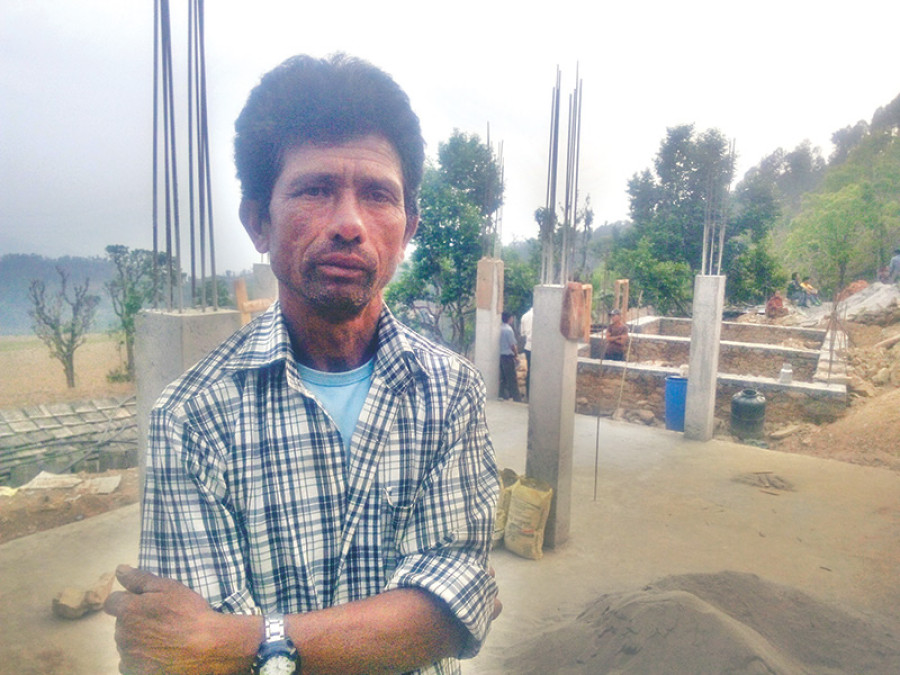National
Water shortage halts rebuilding in Sindhupalchok
Lal Bahadur Giri, of Irku-8 in Sindhupalchok, had hired trained masons and carpenters to rebuild his earthquake-damaged house four months ago.
Anup Ojha
Lal Bahadur Giri, of Irku-8 in Sindhupalchok, had hired trained masons and carpenters to rebuild his earthquake-damaged house four months ago.
Getting trained labours to build homes had become difficult after the 2015 Gorkha Earthquake. And when Giri managed to assemble a team of construction workers more than 18 months after the earthquake, he thought nothing was going to stop him from building a new home. But within months the construction works came to a halt. The village was suddenly hit by water scarcity, a problem which had never crossed Giri’s mind.
The violent earthquake had depleted the region’s groundwater, the primary water source for the villagers. The shortage of water has affected the rebuilding works in the entire village of Irku, 75 km northeast of Kathmandu.
In the settlement of Diyale, where Giri is from, seven water sources have gone dry.
“We are hoping for the monsoon season to resolve the water crisis. Transporting water through tankers for construction is out of question,” said Giri, who had to take a loan and sell a buffalo to build a new house.
According to Water and Sanitation Division Office in the district, the earthquake had damaged 691 drinking water projects and caused 150 water sources to go completely dry.
Sindhupalchok is among the worst quake-affected districts, where more than 70,000 families were left without homes. The government’s sluggish rebuilding process coupled with water scarcity in Irku and other parts of the district have left the earthquake victims frustrated.
“First, it was hard for us to get trained construction workers to build quake-resilient homes. And when we finally get them, the village suffers from water scarcity. We don’t know what to do,” said Giri.
The Irku villagers have been relying on a water channelised from a small stream 2km east of the village these days. The water collected from the stream is just enough
for drinking and cooking purposes.
The water scarcity in Irku has also hit the farmers, who used to earn up to Rs 300,000 annually by selling vegetables like cauliflower, cabbage and eggplants.
With the water sources dry, the farmers have no way of watering their farms. Two pits, which were built in the village by the District Agriculture Office for rainwater harvesting, are dry for a long time.
“None of the farmers have been able to earn enough money by selling crops since the earthquake,” said Sher Bahadur Thakuri, one of the village farmers.




 9.6°C Kathmandu
9.6°C Kathmandu.jpg)














